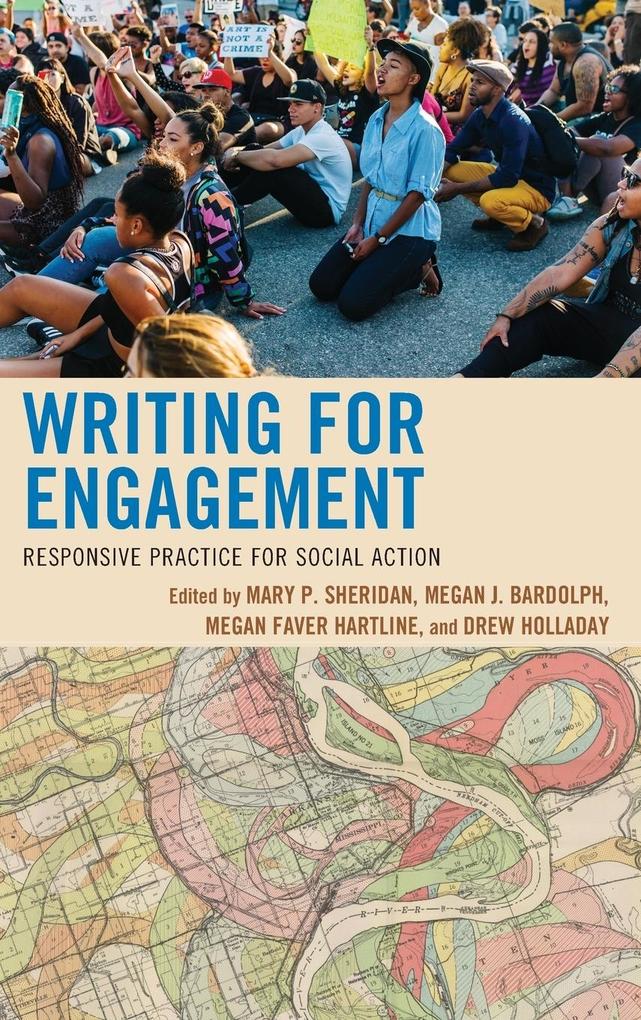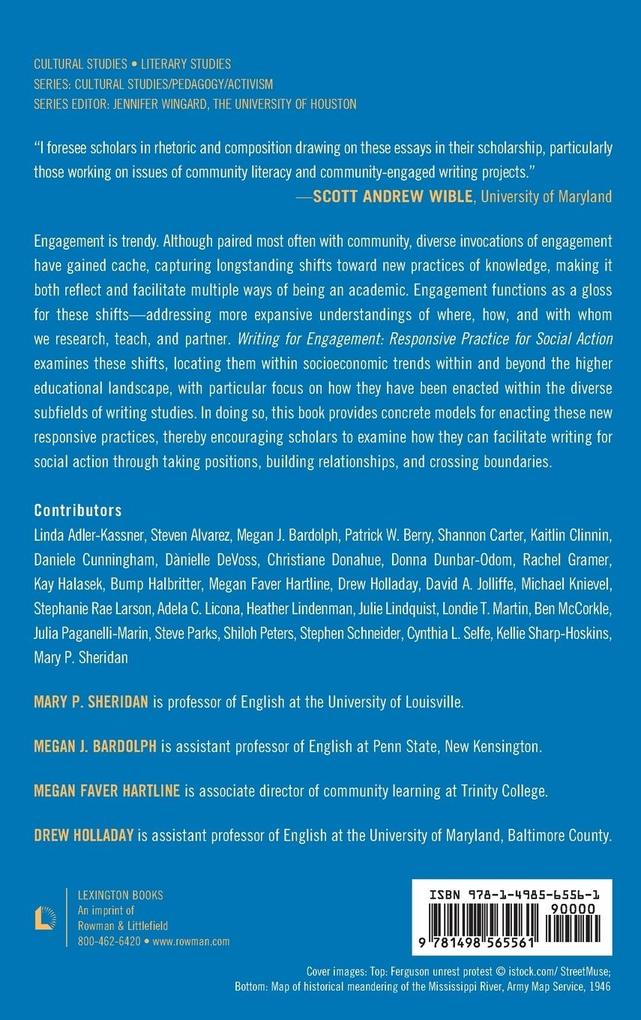As engagement becomes a trendy academic buzzword, we need sustained examinations of what this might mean in practice. This book investigates and models what writing studies scholars have found, both positive and negative, as they use writing to engage with and, ideally, better the communities in which they work
Inhaltsverzeichnis
Introduction
Mary P. Sheridan
Section 1: Taking Positions
1. Taking Action in the Age of Reaction: Constructing Architectures of Participation
Linda Adler-Kassner
2. Engage, Respond, Advocate: Copyright in Context
Dànielle DeVoss
3. The Figured Worlds of Digital Mediation in Schools
Rachel Gramer
4. Witnessing Learning: Building Relationships between Past, Present, and Future Selves
Bump Halbritter and Julie Lindquist
5. Imagining Pedagogical Engagement: On the Rhetorical Limits of Vulnerability
Kellie Sharp-Hoskins
6. Police Use-of-Force Policy: Engagement and the Mediation/Negotiation of Responsibility in a Public Institutional Genre
Michael Knievel
7. From Public Writing to Writing-in-Common: Community Literacy after the Public Sphere
Stephen Schneider
Afterword for Section 1: Taking Positions
Drew Holladay
Section 2: Building Relationships
8. The Rhetoric of Outrage: Responding through Memoir and Public History
Shannon Carter and Donna Dunbar-Odom
9. Remixed Literacies and Radical Cooperation at Play in a Youth-Directed Media Project
Londie T. Martin and Adela C. Licona
10. Enacting Confianza: Responsive Community Literacy Learning Research in Mexington, Kentucky
Steven Alvarez
11. From the Center to the Sidelines: Responsive Leadership in a High School-College Writing Partnership
Heather Lindenman
12. The SISTA Project: Literacy Outreach in Response to Community Needs
David A. Jolliffe, Julia Paganelli-Martin, Daniele Cunningham, andShiloh Peters
Afterword for Section 2: Building Relationships
Megan Faver Hartline
Section 3: Crossing Boundaries
13. Writing, Democracy, Activism: Palestine, Israel, and Community Publishing
Steve Parks
14. Carceral Windows and the Promise of Literacy
Patrick W. Berry
15. Habitus, Disposition, and Disruption in MOOCs: Developing Responsive Pedagogy at Scale
Ben McCorkle, Cynthia L. Selfe, Kaitlin Clinnin, and Kay Halasek
16. Meeting Students Where They Are: Practicing Responsive Pedagogy
Kaitlin Clinnin, Kay Halasek, Ben McCorkle, and Cynthia L. Selfe
17. Refugee Literacy Learning and Liminal Belonging: A Neoliberal Context of Diversity
Stephanie Rae Larson
18. "Responsive Understanding" and Receptivity to Global Writing Research
Christiane Donahue
Afterword for Section 3: Crossing Boundaries
Megan J. Bardolph













